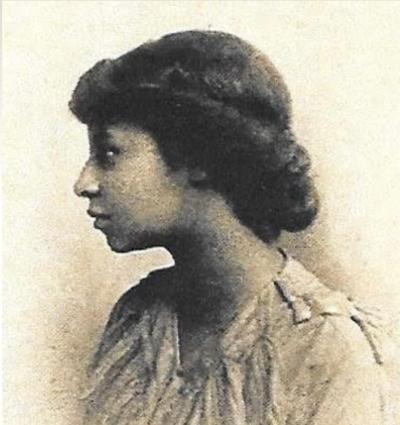Remembering a trailblazer: Belmira Nunes Lopes
When Belmira Nunes Lopes graduated from Wareham High School in 1917, she wasn't just the first student of Cape Verdean descent to graduate from that school. She was also the year's valedictorian.
"The title of my valedictorian address was 'The Ideal Town.' I remember among other things I said that an ideal town would have no prejudice," Lopes wrote in her autobiography.
While Lopes did face the prejudice of a 'non-ideal town', she persevered and excelled, building herself a decades-long career as a teacher and working to help the Cape Verdean community in New England and on the islands.
The Wareham Historical Society co-hosted a presentation remembering Lopes and her life on Monday, Jan. 22, together with co-sponsor Bourne-Wareham Race Amity. It was presented by Wandra Harmsen, a founding member of Bourne-Wareham Race Amity, a group that promotes cross-cultural, cross-racial friendships and connection.
Harmsen said she found out about Lopes through Manny Amado, Lopes' late nephew.
"He was so proud of her, and because he spoke about her to everyone, she was finally honored in the town she grew up in," said Mary Lou Amado, Manny's daughter. She thanked the Wareham Historical Society for the event and for carrying out Lopes' legacy.
Lopes' parents each came from the Cape Verde islands in the late 1800s.
Cape Verde, a group of ten islands off the coast of West Africa, was discovered by the Portuguese. Its population grew as Cape Verde became a depot for the slave trade.
Lopes' parents met and married in Providence, Rhode Island, and moved around the South Coast of Massachusetts, including to Wareham on several occasions.
Belmira Nunes Lopes was born in 1899 when her family lived in Harwich, and moved to East Wareham with her family when she was 8 and in the third grade.
At the time, Lopes was the only Cape Verdean girl to attend Wareham High School — there had been two boys before her, but one dropped out and one transferred before graduation.
She faced slurs, prejudice and social isolation, Harmsen said. "She would sit by herself, and her fellow students would actually rather stand than sit beside her on the trolley."
Despite the difficulties she faced, Lopes was an accomplished student who excelled in languages, learning French, Portuguese and Latin.
After Lopes left high school, she went on to higher education and graduated with honors from Radcliffe College, the women's college associated with Harvard when that institution accepted only men.
Lopes tried to come back and teach Spanish at Wareham High School. The superintendent of schools told her that parents would object to her as a teacher because she was of a different ethnic background, but the school did ask her to teach at an Onset school with an almost exclusively Cape Verdean student body.
"She refused to work in a segregated school," said Harmsen. "So she left.”
Lopes taught in many places over her decades-long career, including Puerto Rico, Washington D.C. and New York. She stayed connected to her Cape Verde roots, founding the Organization for Cape Verdean Improvement, raising $30,000 for relief when the islands were stricken with drought and promoting awareness of the Cape Verdean population in New England.
"There was nobody who had already done what she had done, she was the first so many times," said Harmsen.













